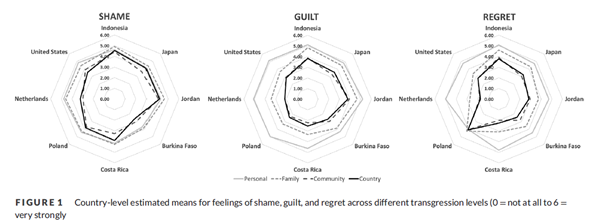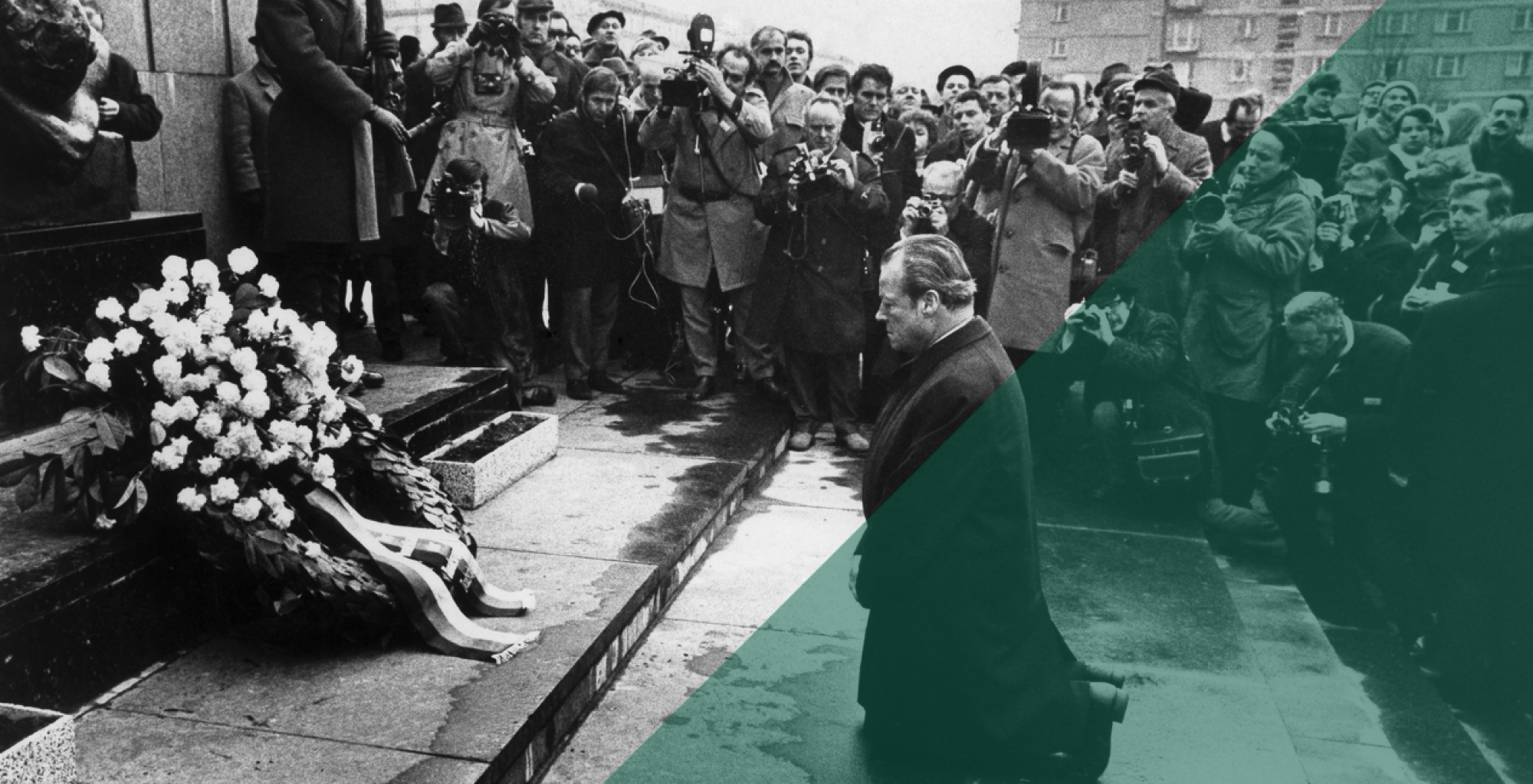Our latest article titled “Group-based shame, guilt and regret across cultures” has just been published in the European Journal of Social Psychology. Together with our collaborators, Marlies and Juliette examined to what extent people (N=1,358) experience shame, guilt, and regret when their group (e.g., country, community, family) has done wrong, and compared this across eight diverse countries: Burkina Faso, Costa Rica, Indonesia, Japan, Jordan, the Netherlands, Poland, and the United States. We assessed whether any differences in these experiences can be explained by the extent to which people endorse more collectivistic or individualistic values, or live in a country where such values are more salient.
Overall, our findings suggest that people’s emotional responses to wrongdoing varies more than previous research indicates, and that group-based shame in particular may be more prevalent than previously assumed (see figure). The differences in people’s experiences of these emotions mostly depends on who has done the wrong. We also see some variation across countries, which can be partially explained by the endorsement of individualist and collectivistic values by people themselves and in their countries. The results highlight the importance of taking into account individual and cultural values when studying group-based emotions, as well as the different identity groups involved in the wrongdoing.
The paper, available as an open access article, can be found here:
de Groot, M., Schaafsma, J., Castelain, T., Malinowska, K., Mann, L., Ohtsubo, Y., Wulandari, M. T. A., Bataineh, R. F., Fry, D. P., Goudbeek, M., & Suryani, A. (2022). Group-Based Shame, Guilt, and Regret across Cultures. European Journal of Social Psychology, 1–15. http://doi.org/10.1002/ejsp.2808


